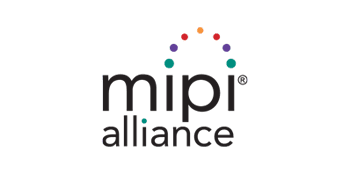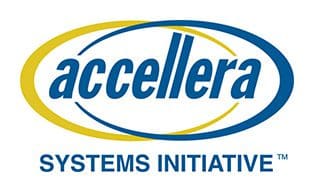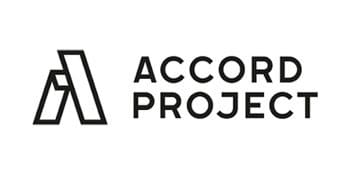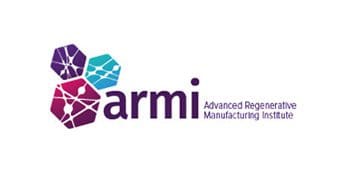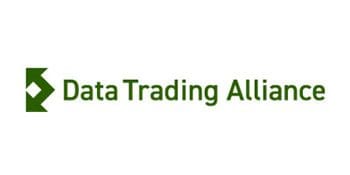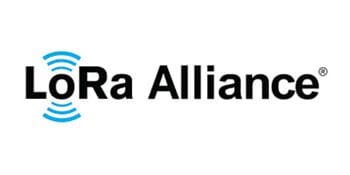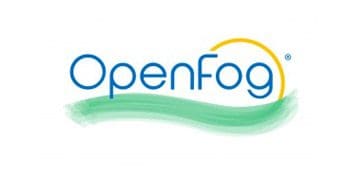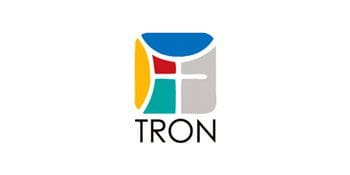The IEEE SA Industry Affiliate Network (IAN) is a broad-based growth platform focused on bringing together consortia, industry alliances and other industry organizations looking to rapidly evolve their specifications into global IEEE standards. IAN is open to any consortia, industry alliance or other industry organizations, looking to bring forward specifications for standards development and market adoption.
IAN provides an open and strategic framework to identify and actively engage organizations to:
- Foster strategic activities to achieve greater impact on standards deployment process
- Drive global market visibility and acceptance through the creation of industry standards
- Enable the creation and release of new market-relevant standards
- Accelerate paths from specifications to standards development
- Increase visibility of market-relevant specifications
Participate in IAN
As a participants of IAN, your organization has a broad array of opportunities available to help drive your technology acceptance on a global stage.
Benefits of IAN participation includes:
- Mentor organizations through the IEEE standards development process
- Participate in open forums to share and exchange real-world ideas, practices and insights
- Leverage the IEEE global branding, distribution and publishing to support your standardization activity
- Accelerate development and acceptance of industry specifications as IEEE standards
- Opportunities to market collaborative outputs through joint events including, conferences, workshops and webinars
- Access to other IEEE offerings:
- Instantiate a certification mark through IEEE Conformity Assessment Program (ICAP)
- Rapid not-for-profit entity establishment for go-to-market needs through IEEE’s Industry Standards & Technology Organization (ISTO)
- Alliance Management Services (AMS) for turnkey operational support services
- Connections to over 37 IEEE Societies & 9 Councils and relevant programs
- Member & Geographic Activities (MGA) that provide access to the over 419,000 global professionals
Featured Participant
MIPI Alliance (MIPI) develops interface specifications for mobile and mobile-influenced industries. There is at least one MIPI specification in every smartphone manufactured today. Founded in 2003, the organization has over 300-member companies worldwide and 14 active working groups delivering specifications within the mobile ecosystem. Members of the organization include handset manufacturers, device OEMs, software providers, semiconductor companies, application processor developers, IP tool providers, automotive OEMs and Tier 1 suppliers, and test and test equipment companies, as well as camera, tablet and laptop manufacturers.
Accellera Systems Initiative is an independent, not-for profit organization dedicated to create, support, promote, and advance system-level design, modeling, and verification standards for use by the worldwide electronics industry. We are composed of a broad range of members that fully support the work of our technical committee to develop technology standards that are balanced, open, and benefit the worldwide electronics industry.
The Accord Project establishes and maintains a technology neutral foundation for smart legal contracts. Smart agreements promise to reduce friction and transaction costs in the creation and management of commercial relationships. Enabling this future requires the necessary tools to format, share, execute, and manage legally enforceable machine-readable agreements. The Accord Project establishes and maintains a universal legal and technical foundation for smart legal contracts in a technology neutral manner.
The Advanced Regenerative Manufacturing Institute (ARMI) is a New Hampshire membership-based not-for-profit organization with the mission to make practical the large-scale manufacturing of engineered tissues and tissue-related technologies, to benefit existing industries and grow new ones.
Visit the Advanced Regenerative Manufacturing Institute Website
Upon examination of a working group in the Cabinet Secretariat of the Chief Intelligent Office, the Ministry of Internal Affairs and Communications, and the Ministry of Economy, Trade and Industry, the Alliance has discussed its foundation since June 2017. The purpose of the Alliance is to set up technical and systematic environments, so that users can easily judge, collect and utilize data that they seek. The Alliance establishes Technology Standards Committee, Operation Standards Committee, and Data Utilization Committee, to be engaged in below activities.
The ECC is dedicated to advancing cooperation among industry resources from government, vendor, academic, research, and customer sectors, and pushing forward the sustainable development of the edge computing industry.
The LoRa Alliance® is an open, nonprofit association that has grown to more than 500 members since its inception in March 2015, becoming the largest and fastest-growing alliance in the technology sector. Its members closely collaborate and share experiences to promote and drive the success of the LoRaWAN® protocol as the leading open global standard for secure, carrier-grade IoT LPWAN connectivity.
The OpenFog Consortium (OpenFog) is a public-private ecosystem formed to accelerate the adoption of fog computing in order to solve the bandwidth, latency and communications challenges associated with the Internet of Things (IoT), Artificial Intelligence, Robotics, the Tactile Internet and other advanced concepts in the digitized world. It was founded by ARM, Cisco, Dell, Intel, Microsoft and Princeton University Edge Computing Laboratory in November 2015. OpenFog is now part part of Industrial Internet Consortium.
TRON Forum (Location: Shinagawa, Tokyo, Chair: Ken Sakamura, Dean, Faculty of Information Networking for Innovation and Design (INIAD), Toyo University) has been established in 2002 to promote TRON Project which aims to establish an Open IoT environment that is free of proprietary restrictions by using open source, open data and Open API. The forum has conducted activities focusing on T-Engine Project that aims to improve the development environment of embedded systems and operating Ubiquitous ID Center which promotes and disseminates ubiquitous ID architecture and its component technologies such as uCode.
Standards from Industry Specifications
- IEEE 1666-2011: Standard for Standard SystemC Language Reference Manual
- This standard defines SystemC(R) with Transaction Level Modeling (TLM) as an ISO standard C++ class library for system and hardware design.
- IEEE 1666.1-2016: IEEE Standard for Standard SystemC® Analog/Mixed-Signal Extensions Language Reference Manual
- This standard defines the Analog/Mixed-Signal extensions for SystemC, as an ANSI standard C++ class library based on SystemC for system and hardware design including analog/mixed-signal elements.
- IEEE 1685-2014: IEEE Standard for IP-XACT, Standard Structure for Packaging, Integrating, and Reusing IP within Tool Flows
- Conformance checks for eXtensible Markup Language (XML) data designed to describe electronic systems are formulated by this standard. The meta-data forms that are standardized include components, systems, bus interfaces and connections, abstractions of those buses, and details of the components including address maps, register and field descriptions, and file set descriptions for use in automating design, verification, documentation, and use flows for electronic systems.
- IEEE 1735-2014: IEEE Recommended Practice for Encryption and Management of Electronic Design Intellectual Property (IP)
- This standard specifies embeddable and encapsulating markup syntaxes for design intellectual property encryption and rights management, together with recommendations for integration with design specification formats described in IEEE 1800 (SystemVerilog) and IEEE 1076 (VHDL).
- IEEE 1800-2017: IEEE Standard for SystemVerilog–Unified Hardware Design, Specification, and Verification Language
- This standard provides the definition of the language syntax and semantics for the IEEE 1800™-2017 Standard for SystemVerilog–Unified Hardware Design, Specification, and Verification Language, which is a unified hardware design, specification, and verification language.
- IEEE 1800.2-2017: IEEE Standard for Universal Verification Methodology Language Reference Manual
- This standard establishes the Universal Verification Methodology (UVM), a set of Application Programming Interfaces (APIs) that define a base class library (BCL) definition used to develop modular, scalable, and reusable components for functional verification environments. The APIs and BCL are based on the IEEE 1800 SystemVerilog standard.
- IEEE 1800.2-2020: IEEE Standard for Universal Verification Methodology Language Reference Manual
- This standard establishes the Universal Verification Methodology (UVM), a set of application programming interfaces (APIs) that defines a base class library (BCL) definition used to develop modular, scalable, and reusable components for functional verification environments. The APIs and BCL are based on the IEEE standard for SystemVerilog, IEEE Std 1800™.
- IEEE 1801-2018: IEEE Standard for Design and Verification of Low-Power, Energy-Aware Electronic Systems
- This standard defines the syntax and semantics of a format used to express power intent in energy aware electronic system design. Power intent includes the concepts and information required for specification and validation, implementation and verification, and modelling and analysis of power managed electronic systems.
- IEEE 1934-2018: IEEE Standard for Adoption of OpenFog Reference Architecture for Fog Computing
- OpenFog Consortium–OpenFog Reference Architecture for Fog Computing is adopted by this standard. OpenFog Reference Architecture [OPFRA001.020817] is a structural and functional prescription of an open, interoperable, horizontal system architecture for distributing computing, storage, control and networking functions closer to the users along a cloud-to-thing continuum of communicating, computing, sensing and actuating entities.
- IEEE 2050-2018: IEEE Standard for a Real-Time Operating System (RTOS) for Small-Scale Embedded Systems
- A real-time operating system (RTOS) called μT-Kernel for small-scale embedded systems such as systems with a single chip microcomputer including 16-bit CPUs, systems with a small amount of ROM/RAM, and systems without a memory management unit (MMU) are specified in this standard.
- IEEE 2977-2021: IEEE Standard for Adoption of MIPI Alliance Specification for A-PHY Interface (A-PHY) Version 1.0
- This standard adopts MIPI Alliance–MIPI A-PHY Specification Version 1.0 as an IEEE Standard.


